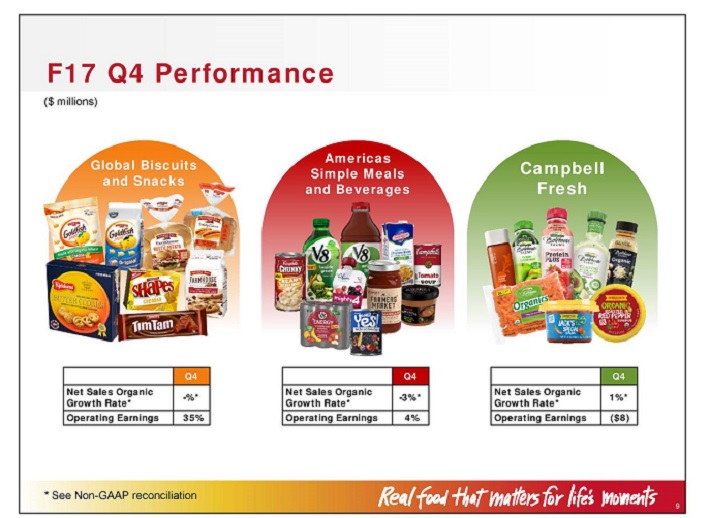The S&P 500 is up 10% so far this year, and has nearly quadrupled off its 2009 low.
The stock market keeps racing to record highs. After such a prolonged rally, the valuation multiple of the stock market has expanded significantly since the Great Recession. For example, the S&P 500 Index traded for an average price-to-earnings ratio of 14.9 in 2012, and has increased each year since.
Today, the S&P 500 Index trades at an average price-to-earnings ratio of 24.5, which is the highest point since 2009. This could be an indication that the stock market rally could slow, or even come to an end.
If the market were to head south, stocks that pay dividends could help cushion the blow.
For example, Dividend Aristocrats would be good picks during a downturn—these are companies in the S&P 500 Index, with 25+ consecutive years of dividend increases. You can see all 51 Dividend Aristocrats here.
This article will present a list of the top 10 stocks investors should buy, if the market stalls, or the economy enters a downturn.
Defensive Dividend Stock #10: Campbell Soup (CPB)
Dividend Yield: 3%
Campbell was founded all the way back in 1869. It has a number of strong brands, including Campbell’s, Pepperidge Farm, Bolthouse Farms, Arnott’s, V8, Swanson, Pace, and Prego.
Campbell Soup is a good pick for a portfolio built to protect investors against a market downturn. It operates in a stable industry, food and beverages. And, like many other food and beverage stocks on this list, it would likely see earnings rise in an economic downturn.
During recessions, consumers tend to scale back their discretionary spending. Instead of eating out at restaurants frequently, consumers often spend less to prepare meals at home. This is why Campbell grew earnings-per-share in each year of the Great Recession.
Earnings-per-share during the Great Recession are shown below:
Campbell has struggled as of late. Organic revenue, which excludes currency exchange impacts, declined 1% in fiscal 2017. The most recent quarterly was particularly difficult. Sales fell 1.8%, and missed analyst estimates by $30 million.

Source: Q4 Earnings Presentation, page 9
Management has attributed this to a difficult environment for shelf-stable products. CEO Denise Morrison said:
“The operating environment for the packaged foods industry remains challenging due to shifting demographics, changing consumer preferences for food, the adoption of new shopping behaviors and the dynamic retailer landscape. In these times, sales growth remains a challenge.”
The good news is, thanks to cost cuts and share repurchases, adjusted earnings-per-share increased 3% for the year. Continued earnings growth should help Campbell increase its dividend moving forward.
Campbell has a business model that will probably lag behind when the economy is growing, because it focuses on packaged goods. Consumers are spending more on organics and natural foods, where Campbell has a small presence.
However, if another recession were to occur, the company would probably see its earnings growth accelerate, as it did during the Great Recession.
Campbell has a solid dividend yield of 3%, and in 2016 the company hiked its dividend by 12%.
Defensive Dividend Stock #9: Dollar General (DG)
Dividend Yield: 1.5%
Dollar General’s first store was opened in 1955. Today, it is a retail giant. It recently celebrated the opening of its 14,000th store.
It is a dollar store, a segment of the industry that offers many products for $1 or less.
Discount retailers hold up well during recessions, as consumers typically scale down their spending when times are tough. Dollar stores operate on the deep-discount end of the pricing spectrum, which is why Dollar General could see traffic rise during a recession.
Indeed, Dollar General might be among the best performers the last time a recession hit in the U.S. Earnings-per-share during the Great Recession are shown below:
As you can see, Dollar General thrived. Earnings soared during the recession, as consumers flocked to dollar stores for their ultra-low prices.
Dollar General expects to keep opening new stores aggressively, and plans for 6%-8% square footage growth per year. By 2020, the company expects to generate net sales of $30 billion, which would be a 50% increase from 2015.
The company believes it will achieve this growth, because there is a large addressable market, both in terms of new geographic regions, and new product categories.

Source: 2020 Vision Presentation, page 11
Dollar General is investing aggressively in new product areas, such as grocery, and believes it can continue to take share.
2016 was another strong year for Dollar General. You may have heard that retail is having a difficult time right now, but Dollar General is a clear exception.
For the year, net sales increased 7.9%, to $22 billion. Sales growth was due to new store openings, and 1% growth in comparable-store sales.
Earnings-per-share increased 12% in 2016, to $4.43. The company expects to open another 1,000 stores in 2017, which should provide for future growth.
Defensive Dividend Stock #8: Brown-Forman (BF-B)
Dividend Yield: 1.4%
Brown-Forman is an alcoholic beverage giant. Its most famous brand is its flagship, Jack Daniels whiskey. The Jack Daniel Distillery has been in operation for more than 150 years. Jack Daniel’s Tennessee Whiskey got its start all the way back in 1865.
Among the company’s other large brands are Herradura and El Jimador tequila, and Finlandia vodka.















No Comments